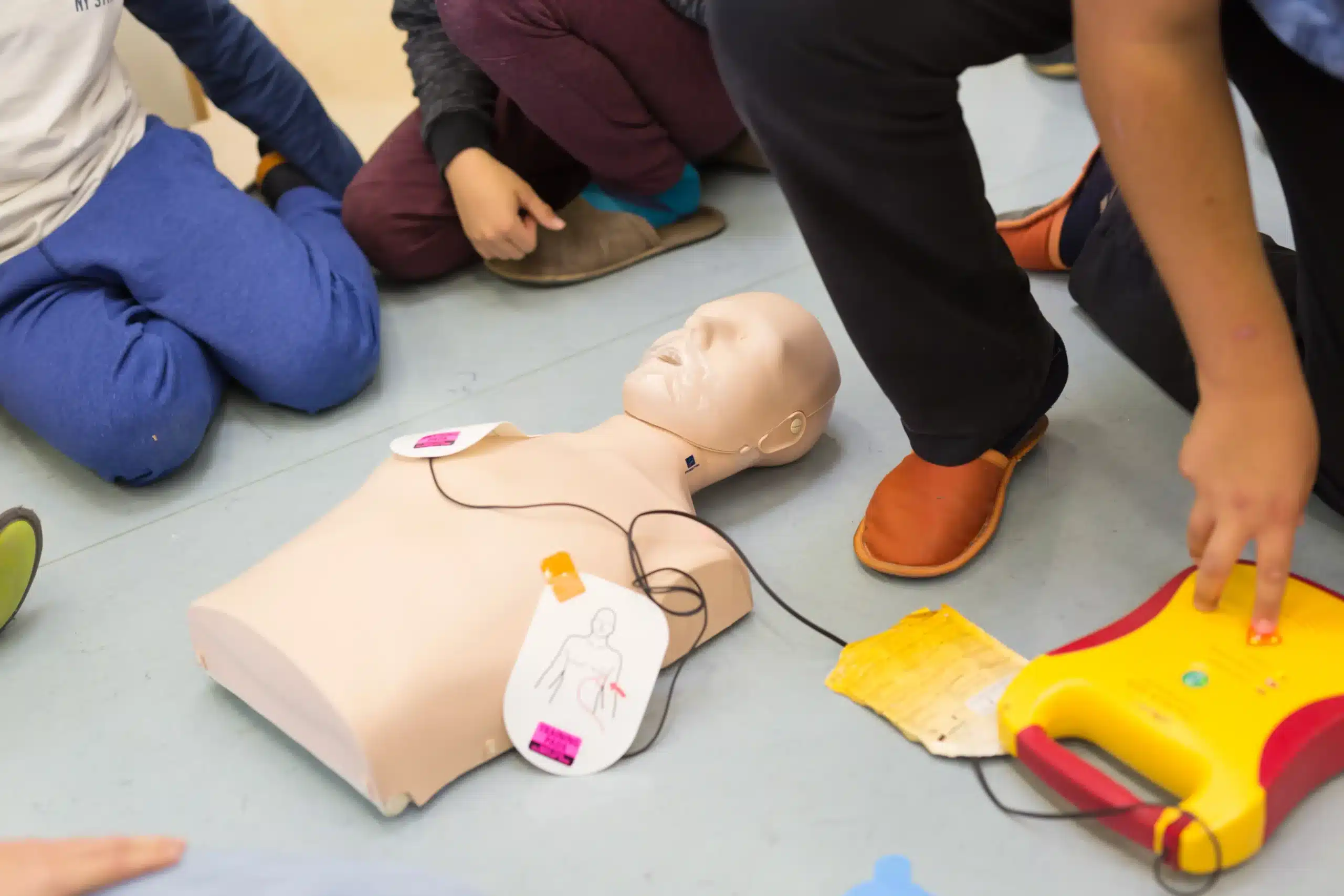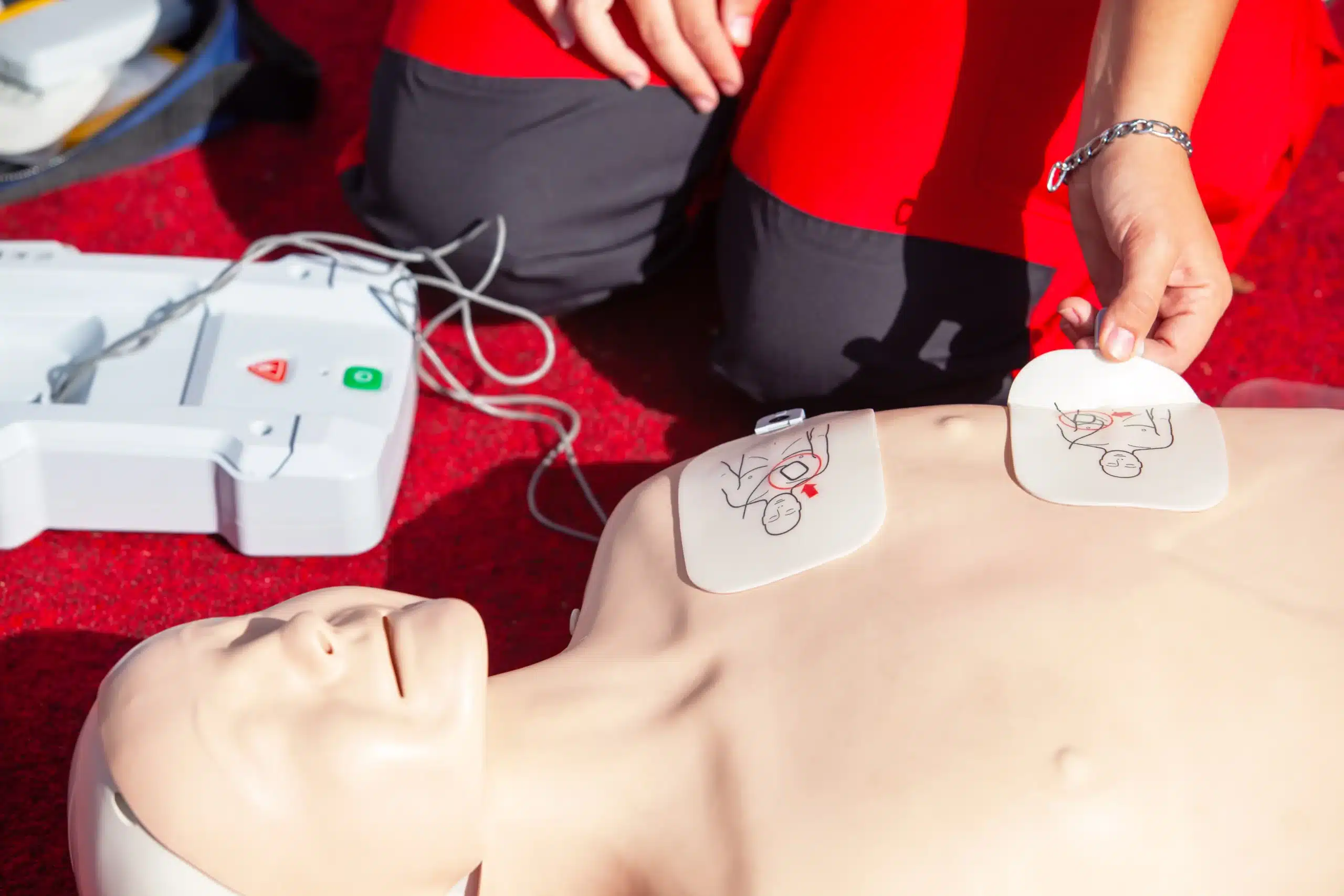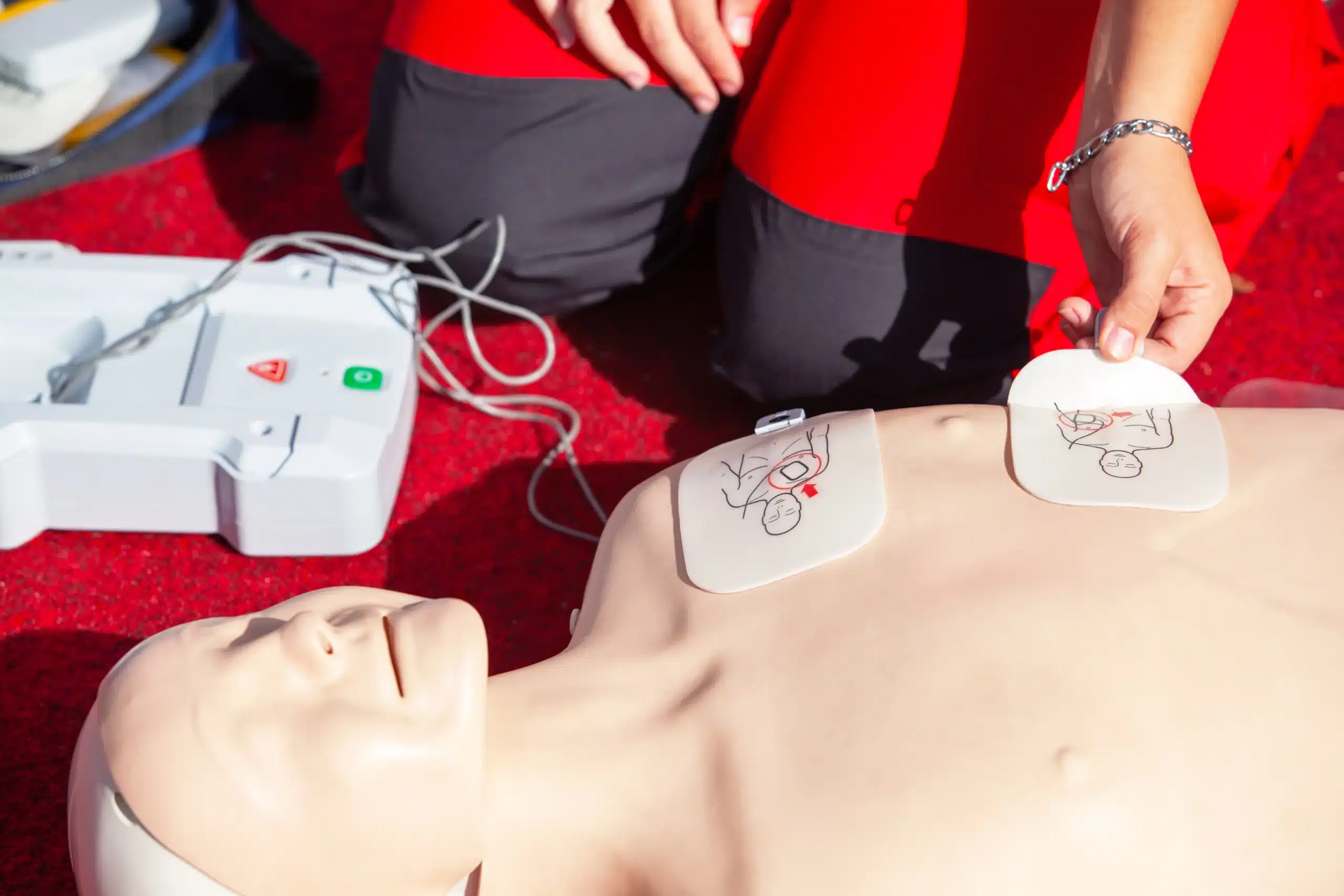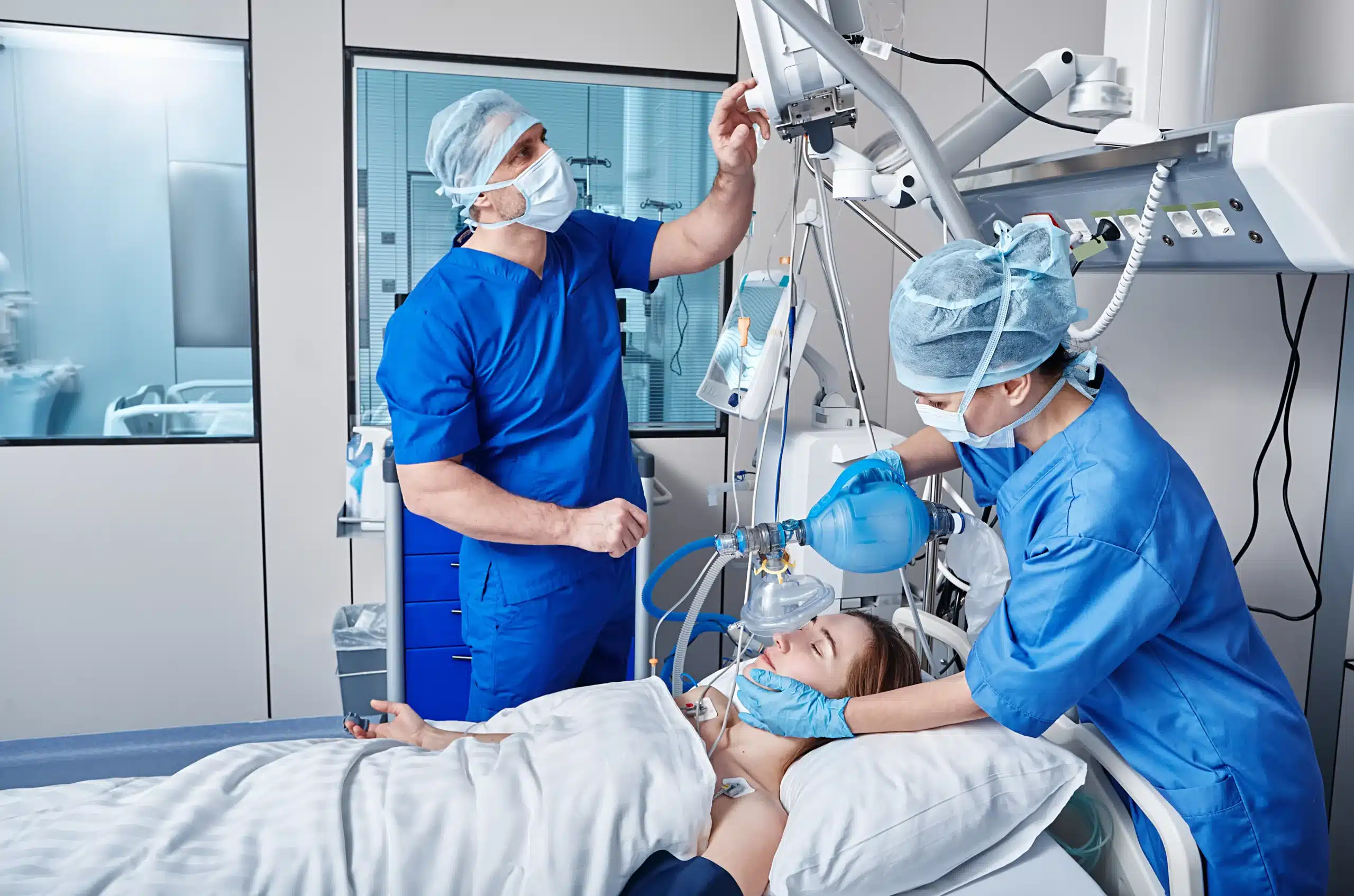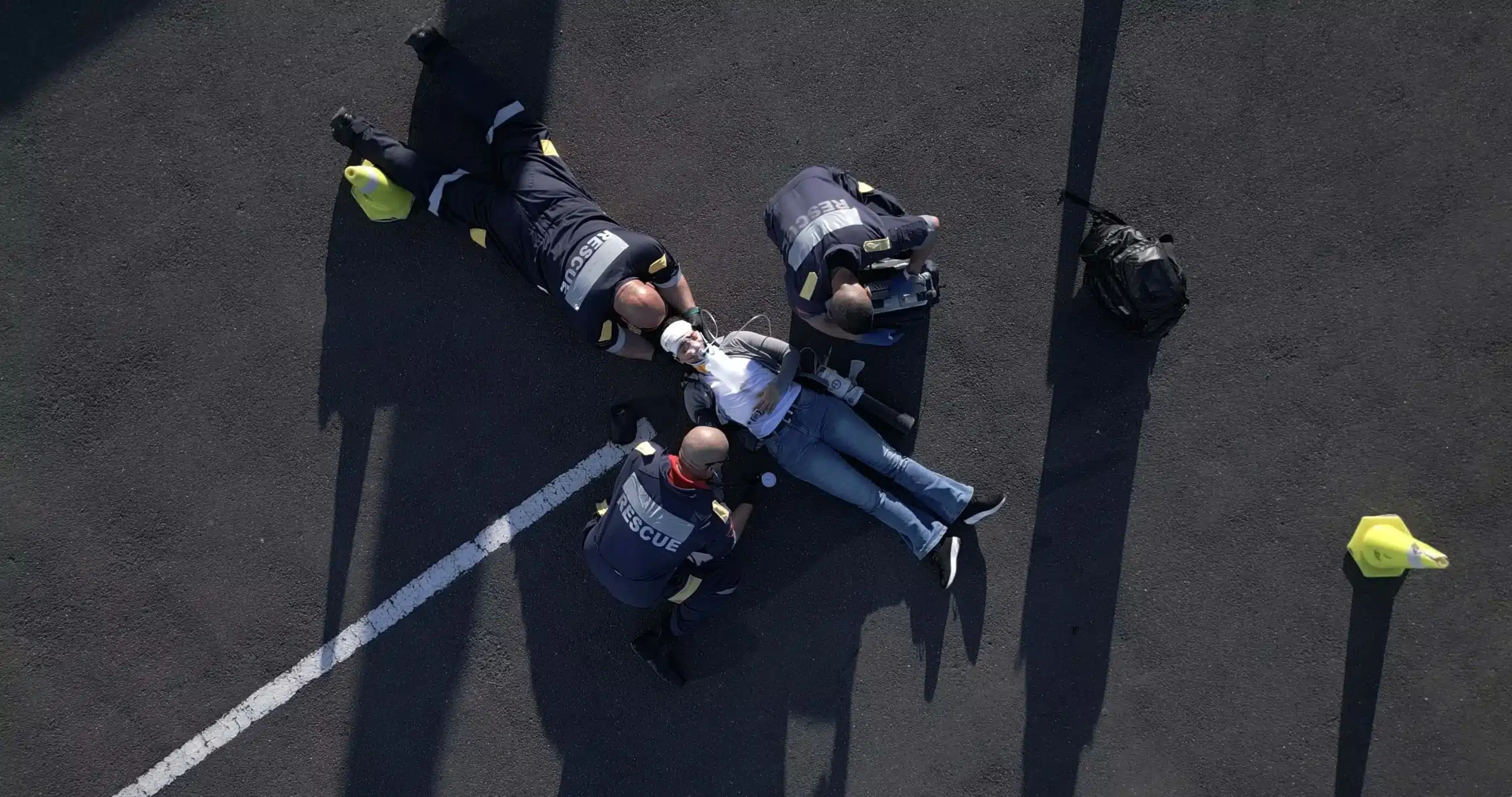Working with children in a healthcare setting is incredibly rewarding, but it also comes with a unique set of responsibilities. As healthcare professionals, we know that children don’t react to medical emergencies the same way adults do. Their smaller bodies and developing systems require specialized care, and in critical situations, every second counts. That’s why Pediatric Advanced Life Support (PALS) certification is so vital, especially for those of us serving the Union City community. PALS empowers healthcare providers with the specific knowledge and skills needed to effectively manage pediatric emergencies, giving us the confidence to provide the best possible care when it matters most. This training goes beyond basic CPR, delving into the nuances of pediatric physiology and the unique challenges of treating young patients. If you’re a healthcare provider in Union City looking to enhance your skills and make a real difference in the lives of children, keep reading to learn more about the importance of pediatric advanced life support in Union City and how it can benefit your career.
Key Takeaways
- PALS certification equips you with life-saving skills: It provides the advanced training needed to manage pediatric emergencies confidently, making you a valuable asset in critical situations.
- San Leandro CPR Classes offers accessible, high-quality training: Conveniently located for Union City residents, they provide AHA-certified PALS courses with flexible scheduling and a focus on practical application.
- Thorough preparation sets you up for PALS success: Take a PALS pretest, brush up on ECG and pharmacology basics, and explore online or blended learning options to maximize your learning experience.
What is Pediatric Advanced Life Support (PALS)?
What is PALS and why is it crucial?
Pediatric Advanced Life Support (PALS) certification gives you the skills to respond to life-threatening emergencies in children and infants. This specialized training is especially important for healthcare providers working in emergency rooms or other high-pressure environments. It prepares them to confidently handle critical situations and provide the best possible care. The American Heart Association PALS program provides a structured curriculum to equip healthcare professionals with the knowledge and skills they need to manage pediatric emergencies. This training can significantly improve outcomes for young patients facing these scary situations. Knowing how to react quickly and effectively can make all the difference.
Key skills and knowledge gained
PALS training teaches skills specific to pediatric resuscitation, like recognizing heart rhythms, starting CPR, and using interventions like defibrillation and medication. These skills are essential for ensuring kids get the best possible care during emergencies. Beyond technical skills, PALS training also develops an understanding of the emotional and psychological aspects of working with children in these situations. This well-rounded approach is key to providing compassionate and effective care. It’s about more than just the medical procedures; it’s about understanding the whole picture and providing comfort and support during a difficult time. The ability to connect with young patients and their families on an emotional level is invaluable.
Top PALS Providers in Union City
Finding the right Pediatric Advanced Life Support (PALS) course is crucial for healthcare professionals entrusted with the care of infants and children. Union City residents have several options for PALS certification, each with its own strengths. Let’s take a closer look at some of the leading providers in the area.
San Leandro CPR Classes
Located nearby in San Leandro, San Leandro CPR Classes offers a convenient option for those seeking PALS certification. As an American Heart Association (AHA) Training Center, they provide high-quality courses taught by experienced instructors. Their focus on customer service and flexible scheduling makes them a popular choice for busy professionals in the surrounding areas, including Union City. They also offer group discounts, which can be a great option for workplaces or groups of friends looking to certify together. You can also check out their BLS course if you’re interested in additional certifications. For those looking for expedited certification, their RQI program is a valuable resource. And with their low price guarantee, you can be confident you’re getting a good value. Don’t hesitate to contact them with any questions.
HealthForce Training Center
HealthForce Training Center offers PALS certification in various locations across the country. While they don’t have a dedicated training center in Union City, their presence in nearby regions might be a viable option for some. They provide AHA-certified courses and cover a wide range of certifications, including BLS, ACLS, and PALS. Be sure to check their website for specific course locations and schedules.
Cascade Training Center
Cascade Training Center is another provider offering PALS certification, with a focus on incorporating the latest AHA guidelines. Their PALS courses often include a combined option for renewing your BLS/CPR for Healthcare Providers credential, streamlining the process for those needing to maintain both certifications.
American Red Cross
The American Red Cross is a well-known provider of health and safety training, including PALS certification. They emphasize a science-based curriculum and offer various learning options to cater to different learning styles. Explore their PALS program to see if it aligns with your needs.
PALS Certification: Course Details & Costs
Core Curriculum
PALS training is a classroom, video-based, instructor-led course. It uses simulated pediatric emergencies to reinforce important concepts like systematic pediatric assessment, basic life support, PALS treatment algorithms, effective resuscitation, and team dynamics. The course covers essential skills, from infant and child CPR to recognizing when a child needs immediate intervention. You’ll learn how to apply CPR early, work effectively within a team, and manage unstable patients with arrhythmias and post-cardiac arrest. This comprehensive PALS curriculum ensures you’re prepared for various pediatric emergencies.
Hands-on Training
PALS isn’t just about textbook knowledge; it emphasizes practical skills. Learning in a group setting allows you to practice high-performance team dynamics—a crucial skill in emergencies. You’ll gain hands-on experience with techniques and procedures, building confidence in your ability to respond effectively under pressure. Beyond technical skills, PALS training cultivates a deeper understanding of the emotional and psychological aspects of treating young patients. This holistic approach prepares you to provide compassionate care during stressful situations. Explore PALS certification classes to learn more about the hands-on components.
Pricing and Savings
Understanding the costs associated with PALS certification is important. Many providers offer PALS Certification and Recertification bundled with CPR and First Aid training. Look for group and corporate discounts, which can reduce the cost if you’re registering with colleagues or through your workplace. San Leandro CPR Classes offers competitive pricing and a low-price guarantee. Check their website for details on pricing and discounts.
What to Expect from PALS Certification
Getting PALS certified is a rewarding experience, but it’s helpful to know what the process involves before you begin. Here’s a breakdown of what you can expect:
Course Format and Duration
PALS courses blend classroom learning with hands-on practice. Expect a combination of instructor-led discussions, video demonstrations, and simulated pediatric emergencies. These simulations offer a safe environment to apply your knowledge and build confidence in your skills. A typical initial PALS course takes around 10 hours, while renewal courses are generally shorter, around six hours. Some providers also offer blended learning with online modules and shorter in-person skills sessions. SureFire CPR offers more details on PALS course duration.
Certification Validity & Renewal
Once you complete your PALS course and pass the required assessments, you’ll receive your certification, valid for two years. To maintain your credentials and stay current with the latest guidelines, you’ll need to renew your certification every two years. eMedCert offers further information on PALS certification renewal.
Prerequisites
Before starting a PALS course, you’ll need to complete a PALS pretest, accessible through the American Heart Association. Make sure you bring proof of completion to your course. A foundational understanding of electrocardiograms (EKGs) and pharmacology is also recommended, helping you fully grasp the course material. Even experienced healthcare providers benefit from the structured learning and skill reinforcement provided in a PALS course. Medtigo addresses common misconceptions about PALS training.
Choose the Right PALS Course in Union City
Factors to Consider
When selecting a PALS course in Union City, understanding the certification’s significance is crucial. PALS equips you with the skills to respond to life-threatening pediatric emergencies. This training is especially important for healthcare providers working with children. Consider the course content, instructor experience, and the overall learning environment. A good PALS course should cover essential concepts like airway management, rhythm recognition, and team dynamics. Look for courses aligned with the latest American Heart Association guidelines. San Leandro CPR Classes offers a variety of courses that meet these criteria.
Online vs. In-Person
Choosing between online and in-person PALS certification can feel overwhelming. Both formats offer comprehensive training but cater to different learning styles and schedules. Online PALS courses offer flexibility and self-paced learning, ideal for busy professionals or those who prefer independent study. In-person classes provide hands-on practice and direct interaction with instructors and peers, beneficial for those who thrive in a traditional classroom setting. Some providers offer blended learning, combining online modules with in-person skills sessions for a balanced approach. Consider which format best suits your learning style and availability.
Balancing Cost, Quality, and Convenience
Cost is a factor when choosing a PALS course, but it shouldn’t compromise quality. Online courses are often more affordable, which can be helpful for those on a budget. However, ensure the course still meets AHA standards and provides adequate resources. Convenience is another key consideration. Think about your schedule and location. An online course might be more convenient if you have limited time or live far from training centers. Check out our low price guarantee. Ultimately, the best PALS course balances your individual needs, learning preferences, and budget. Contact us to discuss your options and find the right fit for you.
San Leandro CPR Classes: A Standout Choice
When choosing CPR training, you want a reliable partner committed to quality and convenience. San Leandro CPR Classes stands out as a top choice for individuals and groups seeking certification in the Tri-City area. Let’s explore why.
Comprehensive Courses & Flexible Scheduling
San Leandro CPR Classes offers a wide range of American Heart Association (AHA) certification courses, including BLS, ACLS, PALS, CPR, and First-Aid. This comprehensive selection caters to various professional needs, from healthcare providers and childcare professionals to teachers and community members. Recognizing busy schedules, they offer classes seven days a week, making it easier to fit training into your life. Visit their website for the latest schedule and course offerings. Their commitment to flexibility ensures you can find a class time that works. Plus, they offer discounts for group classes, making it a cost-effective solution for workplaces and organizations.
AHA Certification & Practical Skills
San Leandro CPR Classes is a certified AHA Training Center. This means their courses adhere to the latest AHA guidelines and are taught by certified instructors. Earning your certification through an AHA Training Center like San Leandro CPR Classes ensures your credentials are recognized and respected nationwide. Their PALS courses, for example, provide healthcare providers with the essential knowledge and skills to manage pediatric emergencies. The emphasis on practical, hands-on training ensures you’ll be confident and prepared to respond in real-world situations. For those seeking an expedited process, they also offer the RQI program.
Benefits for Union City Residents
Residents of Union City benefit from San Leandro CPR Classes’ convenient location and commitment to serving the surrounding communities. The skills gained through their PALS training are invaluable for any healthcare professional working with children, improving emergency response and the quality of care. Whether you’re a nurse, doctor, or childcare provider in Union City, San Leandro CPR Classes offers accessible, high-quality training that can make a real difference in pediatric patient care. For any questions or to discuss your specific training needs, contact them directly. They also offer a low price guarantee, ensuring you’re getting the best value for your investment.
Prepare for Your PALS Certification
Getting ready for your PALS certification takes focused preparation. This section covers essential study materials and practical tips to help you succeed.
Study Materials & Resources
Solid preparation is key for PALS certification. The course covers essential areas like infant and child CPR, quickly recognizing when intervention is needed, early CPR techniques, teamwork, and managing unstable patients experiencing arrhythmias or post-cardiac arrest. Having the required textbook, whether a physical copy or an eBook, is essential for the in-person portion of the course. This gives you the foundational knowledge you’ll need to master these critical concepts. A PALS pretest can also be incredibly helpful for highlighting any knowledge gaps, allowing you to focus your study efforts effectively. This preparation builds confidence in providing life-saving care.
Tips for Success
Want to improve your chances of PALS certification success? Consider taking an ECG and Pharmacology course beforehand. This foundational knowledge will significantly improve your understanding of the PALS course material. PALS courses can fill up quickly, so registering early secures your spot and avoids last-minute stress. If you’re pursuing multiple certifications, explore bundle packages to potentially save money. Finally, consider the flexibility and convenience of an online PALS certification. Online courses let you learn at your own pace and access valuable resources, which is especially helpful for busy professionals. Contact us at San Leandro CPR Classes to learn more about our PALS certification courses and find the best fit for your needs.
Career Benefits of PALS Certification
PALS certification, especially in a bustling area like Union City, can significantly impact your career. Whether you’re a seasoned healthcare provider or just starting out, holding a PALS certification opens doors and strengthens your existing skillset. Let’s explore some key advantages:
Enhance Your Credentials
PALS certification demonstrates a commitment to pediatric care. It signifies that you possess the specialized knowledge and skills to respond effectively to life-threatening emergencies in children and infants. This specialized training enhances your resume and professional profile, making you a desirable candidate. It shows potential employers you’ve invested in advanced training and are dedicated to providing excellent care for young patients. This can give you a competitive edge when applying for roles in pediatrics, emergency medicine, or critical care. Learn more about PALS.
Improve Patient Care
Beyond technical skills, PALS training cultivates a deeper understanding of the emotional and psychological aspects of treating pediatric patients and their families during stressful situations. This comprehensive approach prepares you to handle the complexities of pediatric emergencies with greater confidence and sensitivity. By mastering these skills, you’re better equipped to provide compassionate, effective care, ultimately leading to improved patient outcomes. This focus on the holistic needs of young patients is a valuable asset. The American Heart Association offers more insights into PALS.
Meet Industry Standards
In many healthcare roles involving children, PALS certification isn’t just recommended—it’s often required. Obtaining this certification demonstrates that you meet industry standards and best practices for pediatric advanced life support. This is essential for physicians, nurses, paramedics, and other healthcare professionals working with infants and children. By holding a current PALS certification, you assure employers and patients that you’re prepared to deliver the highest level of care in critical situations. It also keeps you aligned with the latest guidelines for pediatric emergency care. Explore PALS courses in your area.
Real-World Impact of PALS Training
Effectiveness in Emergencies
Pediatric Advanced Life Support (PALS) training equips healthcare providers with the skills to confidently manage pediatric emergencies. Studies show PALS-trained professionals demonstrate improved proficiency in critical procedures like airway management and vascular access. This enhanced preparedness translates to better patient outcomes, especially during the crucial first moments of a crisis. The American Heart Association emphasizes the importance of consistent PALS training to maintain these life-saving skills.
Early and effective intervention is often the key to survival in pediatric emergencies. PALS training empowers healthcare providers to quickly assess, stabilize, and treat young patients, potentially minimizing long-term complications. This rapid response can significantly improve survival rates and reduce the severity of health issues following a pediatric emergency. The National Library of Medicine offers further reading on the effectiveness of PALS training in emergency situations.
Testimonials
The value of PALS training is consistently reinforced by healthcare professionals who have experienced its benefits firsthand. Many share stories of how PALS prepared them to handle real-life pediatric emergencies with greater confidence and competence. One nurse recounted how her PALS training enabled her to effectively manage a child experiencing respiratory distress, a situation she felt equipped to handle thanks to the course. For more insights, explore PALS testimonials from past participants. We encourage you to contact us to learn more about our PALS courses.
Make an Informed Decision on PALS Certification
Choosing to pursue your PALS certification is a significant step toward elevating your pediatric care. It demonstrates a genuine commitment to ensuring the best possible outcomes for young patients. While basic CPR training is valuable, PALS certification provides healthcare providers with the advanced skills necessary to manage pediatric emergencies confidently. Think of basic CPR as knowing how to change a tire—essential, but PALS equips you with the expertise to handle more complex situations.
A common misconception is that experienced healthcare providers don’t require PALS training. However, even seasoned professionals benefit from the focused training PALS offers, refreshing their knowledge and ensuring they stay current with best practices. It’s similar to continuing education—it keeps your skills sharp and maintains high care standards. A PALS certification also showcases your dedication to professional development, a valuable asset for career advancement.
Before starting your PALS course, consider taking a pretest. This helps identify any knowledge gaps and focus your study efforts effectively. It’s like a practice run before a race, allowing you to familiarize yourself with the material and pinpoint areas needing extra attention. Investing in PALS certification is an investment in your patients’ well-being and your professional growth. It empowers you to make a real difference in critical situations, providing the highest level of care for children in need. If you’re a healthcare provider working with children, PALS certification is essential.
Related Articles
- Online PALS Classes in Hayward: Your Guide – San Leandro CPR Classes
- BLS Training in Hayward: Your Comprehensive Guide – San Leandro CPR Classes
- AHA PALS Classes in San Leandro, CA – San Leandro CPR Classes
- BLS Training in Union City: Your Comprehensive Guide – San Leandro CPR Classes
- HeartCode BLS in Union City: Your Complete Guide – San Leandro CPR Classes
Frequently Asked Questions
Is PALS certification different from basic CPR training? Yes, PALS builds upon basic CPR skills, providing more advanced training specifically for pediatric emergencies. It delves deeper into areas like airway management, rhythm recognition, and team dynamics, equipping you to handle more complex situations. Think of basic CPR as knowing how to change a tire – a valuable skill, but PALS gives you the expertise of a trained mechanic.
How long is the PALS certification valid, and how do I renew it? PALS certification is typically valid for two years. To renew, you’ll need to complete a recertification course before your current certification expires. Renewal courses are generally shorter than the initial certification course and focus on reinforcing key skills and updating your knowledge with the latest guidelines.
Where can I find PALS courses in Union City, and what factors should I consider when choosing one? Several providers offer PALS courses in and around Union City, including San Leandro CPR Classes, which serves the surrounding areas. When choosing a course, consider factors like the provider’s reputation, instructor experience, course schedule, and cost. Think about whether you prefer in-person or online learning, and look for courses that align with the latest American Heart Association guidelines.
What are the career benefits of having a PALS certification? PALS certification enhances your resume, demonstrating your specialized skills in pediatric emergency care. It can open doors to career opportunities and may be a requirement for certain healthcare roles involving children. Beyond career advancement, PALS empowers you to provide better care, giving you the confidence to handle critical situations and potentially improve patient outcomes.
What if I’m an experienced healthcare provider? Do I still need PALS certification? Even experienced providers benefit from PALS training. It reinforces existing skills, introduces new techniques, and ensures you’re up-to-date with the latest guidelines. Think of it like continuing education – it keeps your skills sharp and maintains a high standard of care. PALS certification also demonstrates your commitment to professional development, a valuable asset in any healthcare career.
